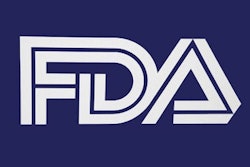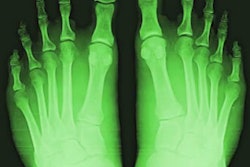
The U.S. Food and Drug Administration (FDA) will soon unveil a new plan aimed at fostering innovation in digital health, according to a blog post by FDA Commissioner Dr. Scott Gottlieb.
Part of a broad innovation initiative across all of the FDA's medical product centers, the Digital Health Innovation Plan will feature a novel, postmarket approach for regulating digital medical devices, according to Gottlieb. He said it's critical that the FDA be forward-thinking in how it regulates digital health devices, citing examples such as consumer-directed mobile apps for fitness, nutrition, and wellness monitoring.
Gottlieb also pointed to decision-support software and technologies used to assist in making diagnoses and developing treatment options; managing, storing, and sharing health records; and managing schedules and workflow.
Greater certainty
The FDA's announcement is part of the agency's attempt to get a better handle on regulation of the rapidly burgeoning digital health market. One big step forward was the 21st Century Cures Act, signed into law in December by President Obama; it spelled out that technologies such as clinical administrative support software and mobile lifestyle apps generally fall outside the scope of FDA regulation.
The FDA, led by the Center for Devices and Radiological Health, is working to implement the digital health provisions of the act, and it will also publish guidance in the coming months to further clarify what falls outside the scope of FDA regulation and to explain how the new statutory provisions affect pre-existing FDA policies, Gottlieb said in his blog post.
"To encourage innovation, FDA should carry out its mission to protect and promote the public health through policies that are clear enough for developers to apply them on their own, without having to seek out, on a case-by-case basis, FDA's position on every individual technological change or iterative software development," he wrote.
The FDA will also provide guidance to clarify its position on products that contain multiple software functions, where some fall outside the scope of FDA regulation and others do not. What's more, Gottlieb said the FDA will provide new guidance on other technologies that, although not addressed in the act, present low enough risks that the FDA does not intend to subject them to certain premarket regulatory requirements.
"Greater certainty regarding what types of digital health technology is subject to regulation and regarding FDA's compliance policies will not only help foster innovation, but also will help the agency to devote more resources to higher-risk priorities," he wrote.
The FDA will also undertake a new initiative this fall to pilot a new approach toward regulating digital health tools, serving as a cornerstone to a more efficient, risk-based regulatory framework for overseeing these medical technologies, according to Gottlieb.
"While the pilot program is still being developed, we are considering whether and how, under current authorities, we can create a third-party certification program under which lower-risk digital health products could be marketed without FDA premarket review and higher-risk products could be marketed with a streamlined FDA premarket review," Gottlieb wrote. "Certification could be used to assess, for example, whether a company consistently and reliably engages in high-quality software design and testing (validation) and ongoing maintenance of its software products. Employing a unique precertification program for software as a medical device (SaMD) could reduce the time and cost of market entry for digital health technologies."
Building a NEST
In addition, Gottlieb said that postmarket collection of real-world data potentially could be used to support new and evolving product functions. Product developers could, for example, leverage real-world data gathered through the National Evaluation System for Health Technology (NEST) to expedite market entry and subsequent expansion of indications.
NEST will be a federated system for evidence generation composed of strategic alliances among data sources such as registries, electronic health records, payor claims, and other sources. The Medical Device Innovation Consortium (MDIC) public-private partnership is serving as an independent coordinating center that operates NEST, and it will announce in the coming weeks the establishment of a governing committee for the NEST Coordinating Center.
The NEST Coordinating Center will include stakeholder representatives, including patients, healthcare professionals, healthcare organizations, payors, and those from industry and government.
"Although FDA does not own or operate NEST, we have been establishing strategic alliances among data sources to accelerate NEST's launch with the initial version of a fully operational system anticipated by the end of 2019," Gottlieb wrote.
The FDA believes these new approaches would create market incentives for greater investment and growth in the digital health technology industry and enable developers to more rapidly deploy new or updated software. In addition, the FDA could better focus its resources, Gottlieb noted.
"Through these and other steps, FDA will help innovators navigate a new, modern regulatory process so that promising, safe, and effective developments in digital health can advance more quickly and responsibly, and Americans can reap the full benefits from these innovations," he wrote. "These efforts are just one part of a much broader initiative that FDA is currently undertaking to advance policies that promote the development of safe and effective medical technologies that can help consumers improve their health. Our goal is to make sure that FDA has the most modern and efficient regulatory approaches when it comes to evaluating new, beneficial technologies."
The full blog post can be found on the FDA's website.




















